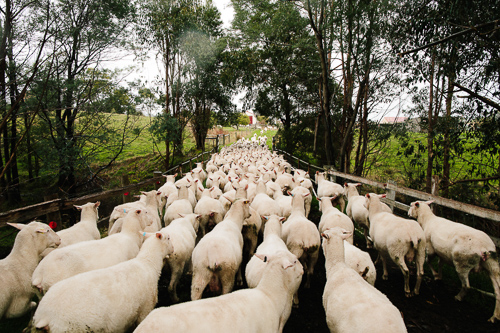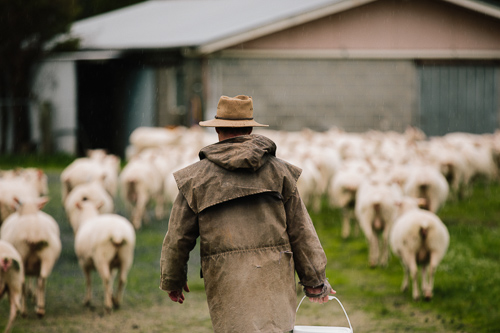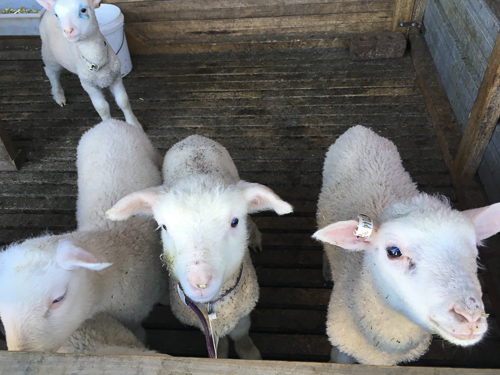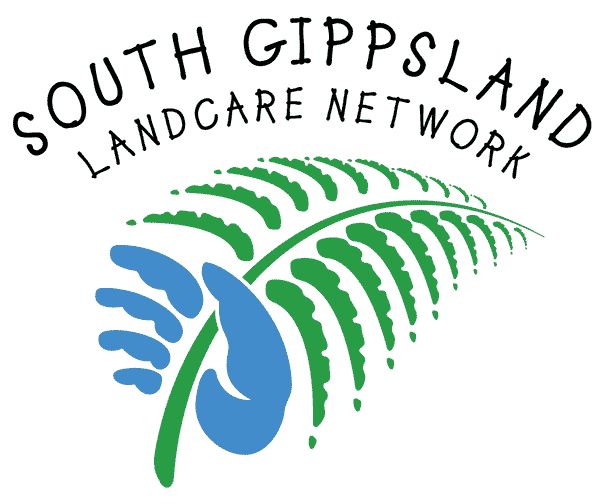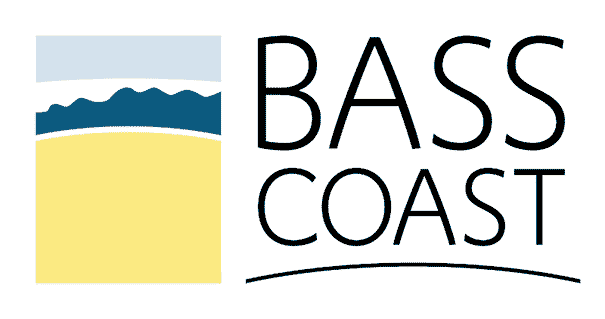Burke and Bronwyn Brandon: Our Story
Burke and Bronwyn are second generation cheesemakers and have run a sheep dairy in Moyarra since moving from the Mornington Peninsula in 2012. The 200-acre farm includes dairy and cheesemaking facilities, as well as a café and retail outlet. Sustainable land use is at the forefront of the Brandon’s priorities, particularly with the on-farm paddock to plate experience they are providing.
Our Vision
“We strive to create traditional cheeses with pure and natural ingredients. To the best of our ability we care for our land and animals, pay attention to detail and provide a true 'paddock to plate' experience.”
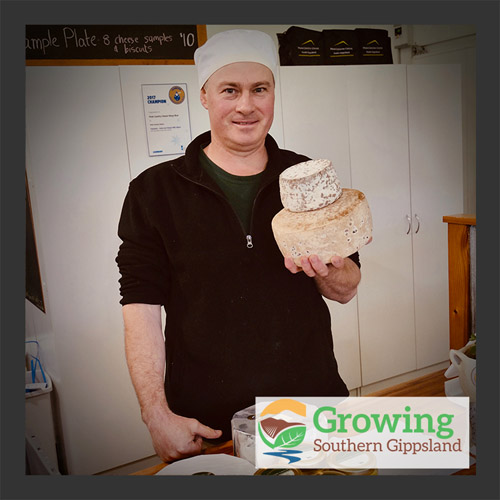
Enterprise: Dairy and Processing - Sheep and cheese
Locality: Moyarra
Business Name: Prom Country Cheese
Catchment management Region: Port Phillip and Westernport
Landcare Network: Bass Coast
LGA: Bass Coast Shire Council
Landform: Valleys
Soil Type: Red-brown clay loam dermosols
Annual Rainfall Average: 856.9 mm or 33.7 inches (Source Bureau of Meteorology)
Our Enterprise
“Originally it was a beef property before we came here and 10 years prior to that it was a dairy farm.”
The Brandon’s came to the area from the Mornington Peninsula where they milked sheep on a small scale. They now run a sheep farm, with cheese processing facilities and a retail outlet.
“Our 200-acre sheep farm in Moyarra includes dairy and cheesemaking facilities, as well as a café and retail outlet that caters for tourists. The entire cheese making process is carried out here.”
The layout allows for visitors to see a large part of the farm without interfering with the production processes. It also means that there is an educational side to the business.
“… having an outlet to not only to sell your product but also educate consumers as to what your product is all about. So, by having people come to the farm they can see where the food is grown. They can hear the story of what goes into their food and better appreciate what it is that's special about our product.”
Our Challenges
“We really do try and work on a basis of minimal soil disturbance … to reduce loss of carbon in the soil and minimise weeds because we don't spray weeds on the farm except for blackberries. We're minimising workload and … tractor traffic on the soils as well, avoiding compaction of the soil. So really the less we interfere with it the better. We're trying to get the animals and the life below the soil to do the work for us.”
The Brandon’s have addressed the problem of energy use, seeking to use energy efficiently.
“We were encouraged through Sustainability Victoria to obtain funding for an energy audit. We knew that we needed to improve our energy usage, but we weren't sure of the best decisions to make at the time. As a result, we have added solar arrays and hot water services and upgraded our gas boiler and reduced our energy bills.”
Our Landscape Activities
The Brandon’s decision to purchase the property was informed by a number of ‘macro’ considerations’, including proximity to markets, attractiveness as a tourist destination and its physical suitability.
“It was more the macro considerations but also the fact that it already had the infrastructure for a dairy on site was pretty good.”
They sought from the outset to enhance the capacity to operate the farm as a ‘pasture-based system’.
"But we've probably let the pastures go to more native state than they were back then, pastures that respond well to subsoil moisture rather than first rise applications, but it was really just the capacity to grow pasture and having relatively flat land to manage as well.”
Part of the reason for selecting this land for our dairy is that revegetation was already underway.
“Our plan for the farm included land for revegetation, where to run waterways and the placement of facilities to support our business and the environment.”
Our Practices and Successes
The Brandon’s have changed the way the land was used in the past, when it was a dairy farm and then a beef property.
“By changing to sheep has drastically affected the grazing style on the ground, pasture, and the impact of animals on the soil. We've changed from a traditional superphosphate fertiliser regime to natural farming methods, so different fertilising structure. The only thing that we've kept the same really is our continuing to revegetate the land, the trees.”
They have seen a dramatic improvement in the soil structure.
“Over the last eight years that we've been in here we've seen a huge improvement in the structure of our topsoil. The root zone of the pasture copes a lot better with the wetness. Paddocks that we couldn't walk across eight years ago we can now drive over in the winter.”
The focus on pasture and soil is complemented by using the sheep as a source of fertiliser.
“We have changed from using superphosphate fertiliser to natural farming methods farm and now grow deep rooted perennial pastures to retain water and carbon in the soil. Water supply is from rainfall and the sheep and 95% pasture feed, the supplementary feed imported for the sheep as a source of fertilizer.
Instead of applying superphosphate with the crop duster to the hills we'd rather intensively feed the sheep minerals and supplementary feed at the bottom of the hill and they carry it up the hill for us. They deliver the fertiliser in a composted form … that's in a slow release format.”
Sharing
The on-site café, shop and engagement with tourists is critical to the success of the enterprise.
“What's more important to us [than wool, meat and livestock sales] is what tourism is doing in the region because the majority of our income is not just from cheese sales but tourism service of other food being served and tour groups and things like that.”
Prom Country Cheese use workshops, seminars, webinars and Google Groups to keep up to date with developments in the industry.
Website
Images
